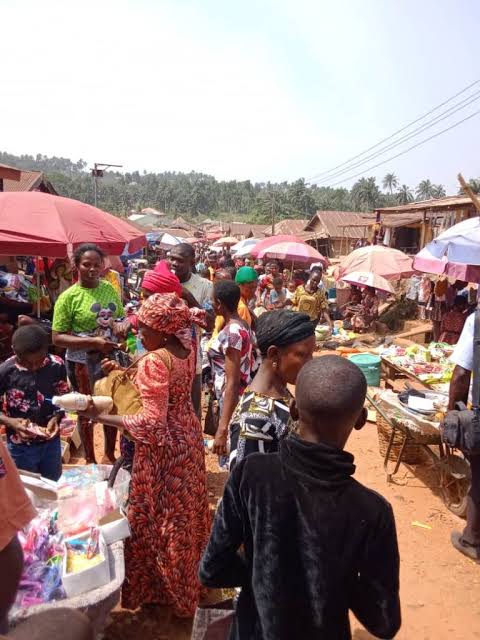A newly documented report has exposed significant financial challenges being faced by women entrepreneurs struggling in Nigeria’s bustling and unregulated informal sector. This highlighted a gender disparity in incomes, business longevity, and access to capital.
The Moniepoint Informal Economy Report 2025, produced in partnership with the International Finance Corporation (IFC), found that 41% of women-owned informal businesses earn a daily profit of less than ₦10,000. This compares to 34% of businesses owned by men falling below the same income threshold.
The disparity is even more pronounced at the higher end of the earnings scale, with only 10% of women-owned businesses earning above ₦50,000 daily, compared to 16% of those owned by men.
Beyond profitability, the study uncovered other critical challenges. Women-owned ventures were found to have shorter lifespans, with just one in four surviving beyond five years. Furthermore, women’s representation among business owners in the informal economy has declined, dropping from 37% to 35% in the past year.
Cost Pressures, Credit Aversion Squeeze Businesses
The report highlights a difficult operating environment for all informal businesses, with a overwhelming 79% reporting an increased cost of doing business over the past year. Key drivers cited were rising prices from suppliers, higher transportation costs, and the depreciation of the naira.
While a majority (65%) of businesses saw revenue increase, only 47% reported a corresponding rise in profit, indicating severe margin compression.
In response to these pressures and a high-interest rate environment, many businesses are shunning loans. The report shows a significant decline in credit appetite, with 51% of respondents choosing not to borrow, up from 30% the previous year.
“The most common reason why they don’t take loans is that they’re afraid of being unable to repay them,” the report stated, noting that women are more likely to avoid loans due to this fear or because of high interest rates.
Action For Coordinated Policy and Support
The report’s findings have prompted calls from industry leaders for targeted interventions.
Tosin Eniolorunda, Founder and Group CEO of Moniepoint Inc., stated the report’s goal is to “help key stakeholders see and understand the effects of every decision made on informal businesses, and giving them a voice where they’ve previously gone largely unheard.”
Foyinsolami Akinjayeju, CEO of Enhancing Financial Innovation and Access (EFInA), urged for “coordinated measures that guarantee access, digital inclusion, and gender equity,” including regulatory incentives for financial institutions to provide tailored products for women.
Echoing this sentiment, Chinyere Almona, Director-General of the Lagos Chamber of Commerce and Industry, advocated for “simplified registration, and targeted tax relief,” arguing that “compliance should be rewarding, not burdensome.”
Jumoke Oduwole, Minister of Industry, Trade and Investment, emphasized the broader economic imperative, stating that “unlocking the potential of the informal economy especially for women and youth is critical to building a more prosperous future.”
The report underscores the urgent need for gender-sensitive policies to close the financial gap and foster a more inclusive and resilient informal sector, which serves as a critical backbone of the Nigerian economy.

